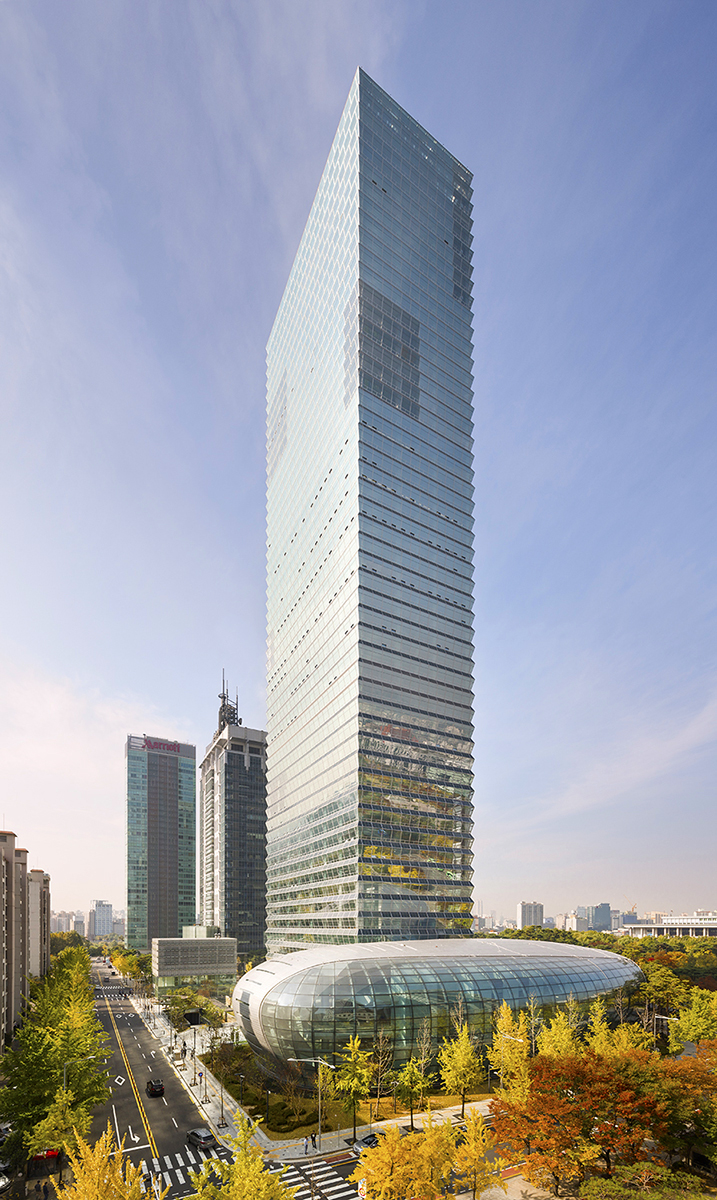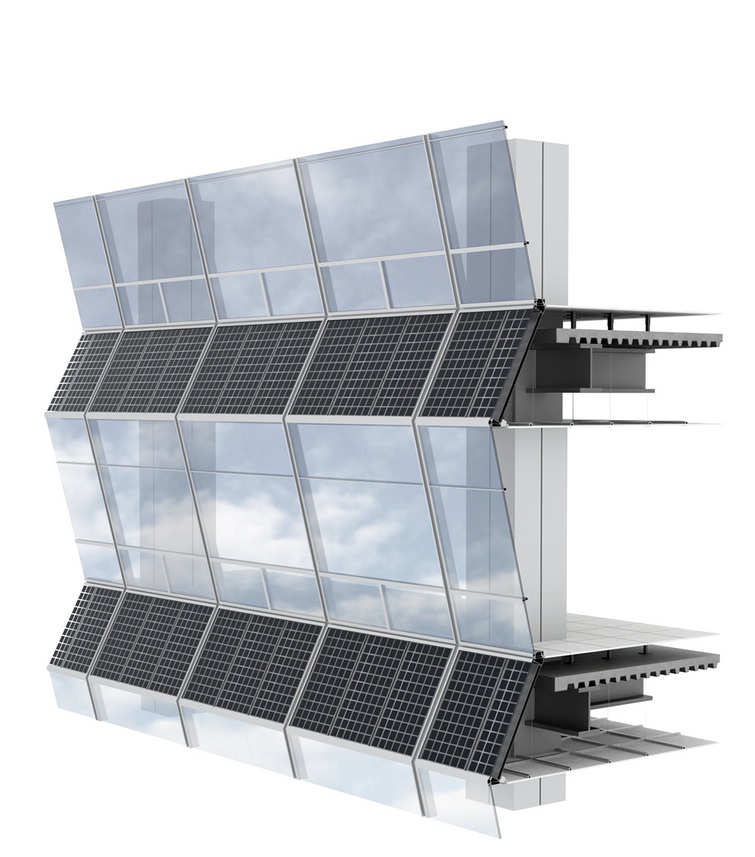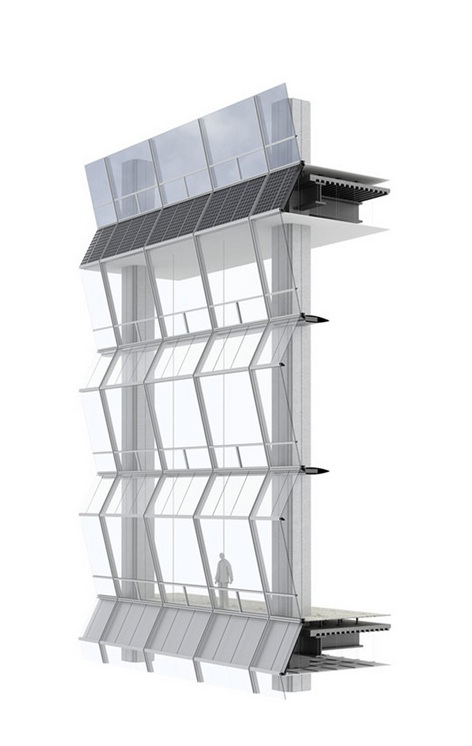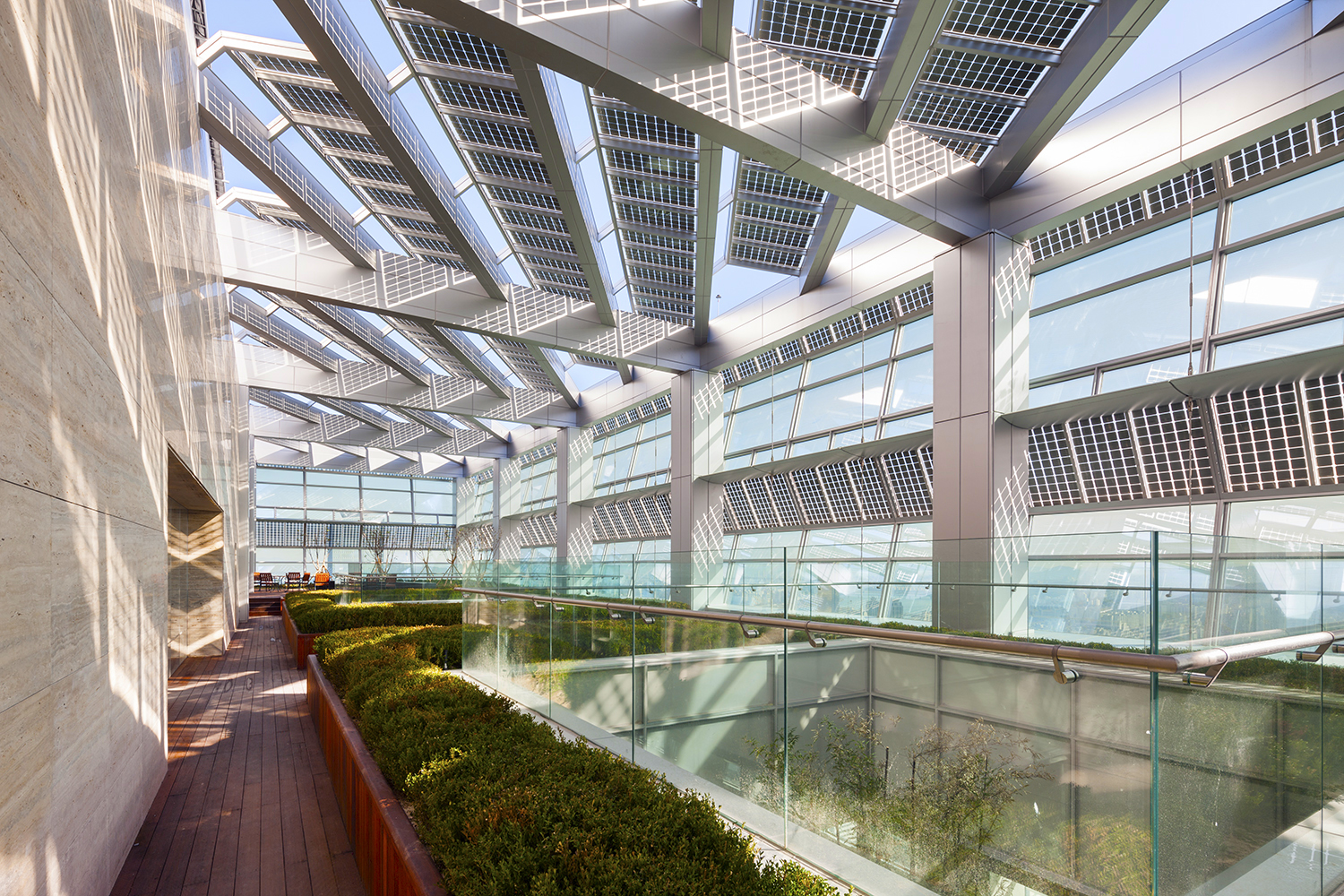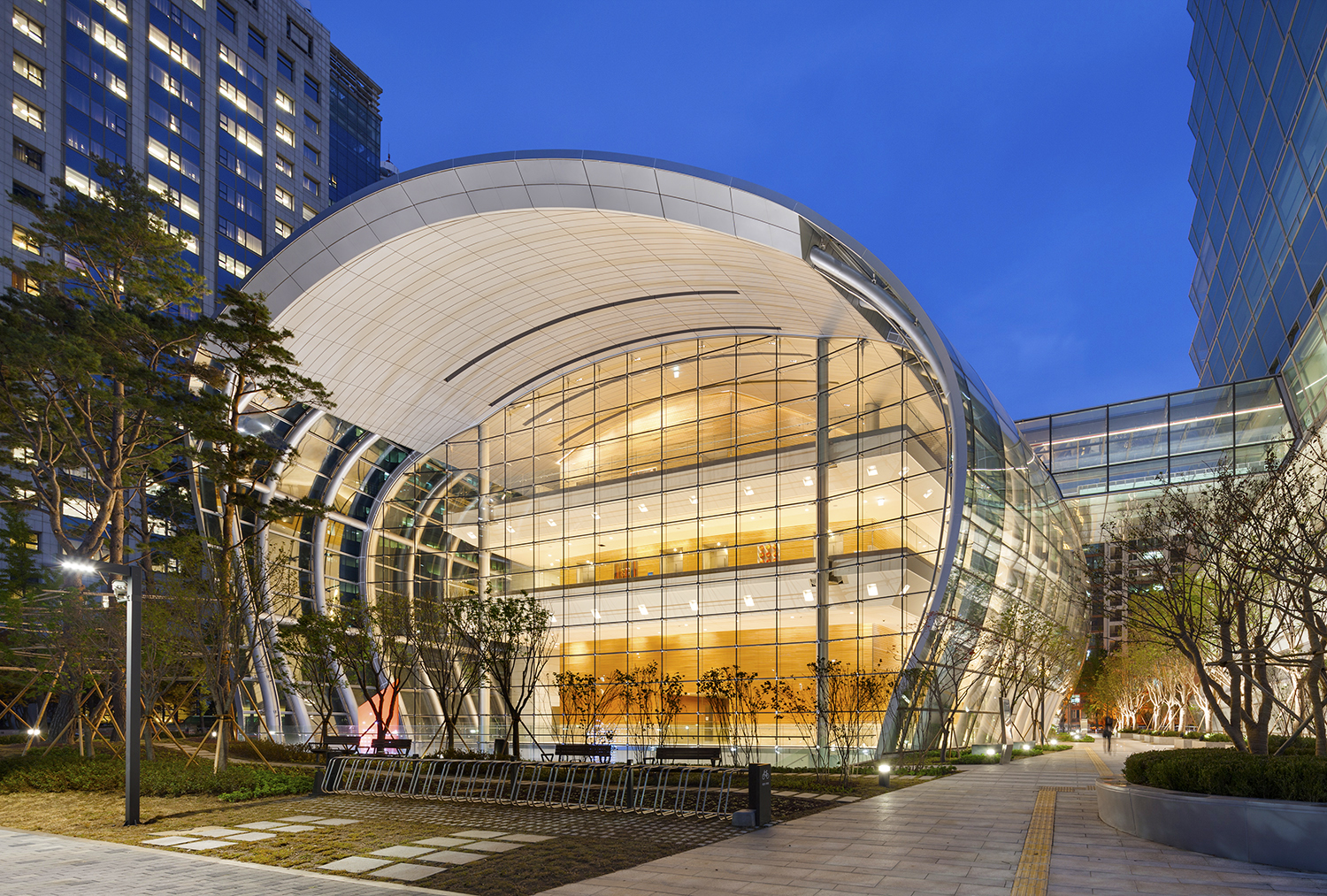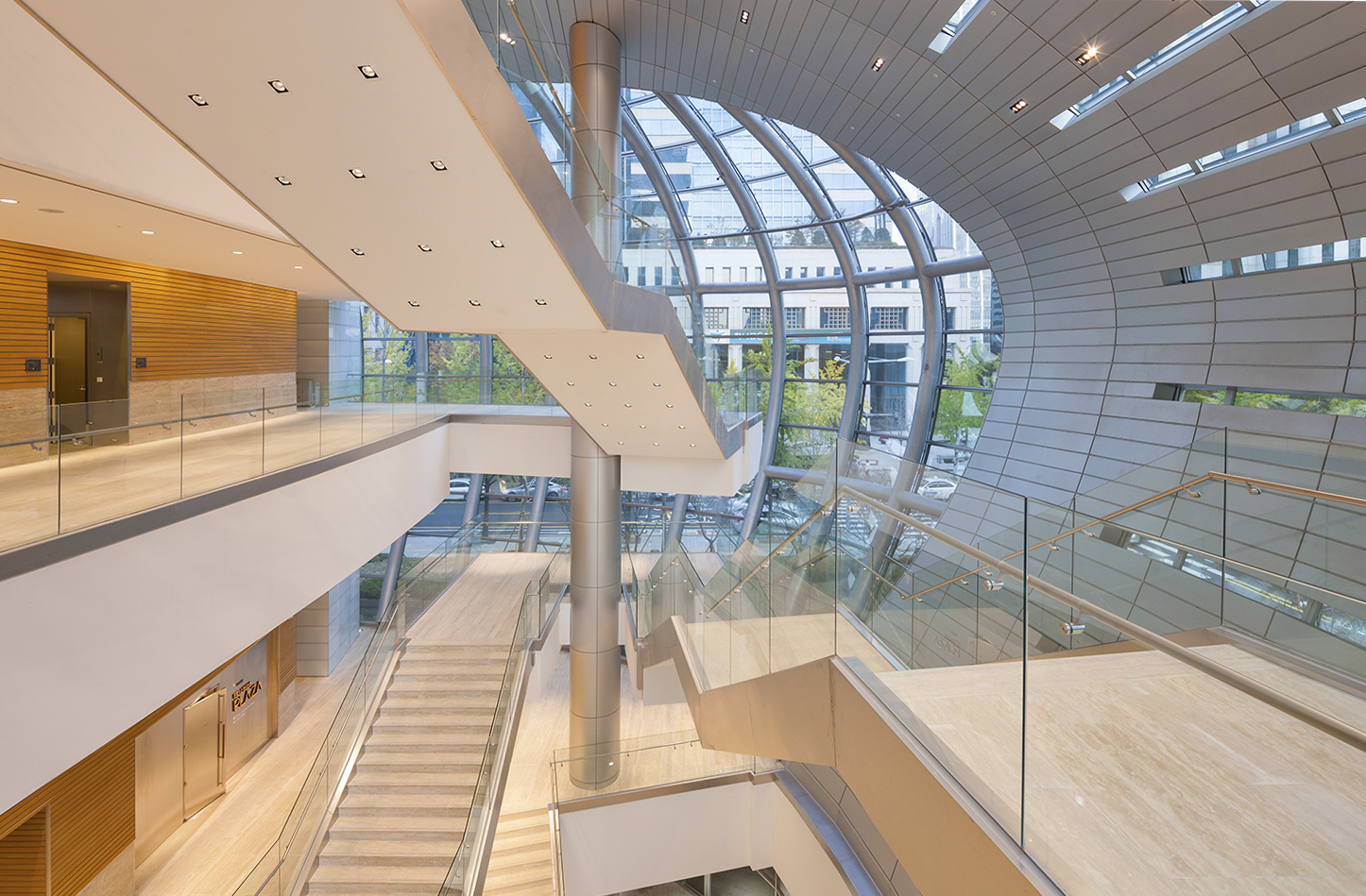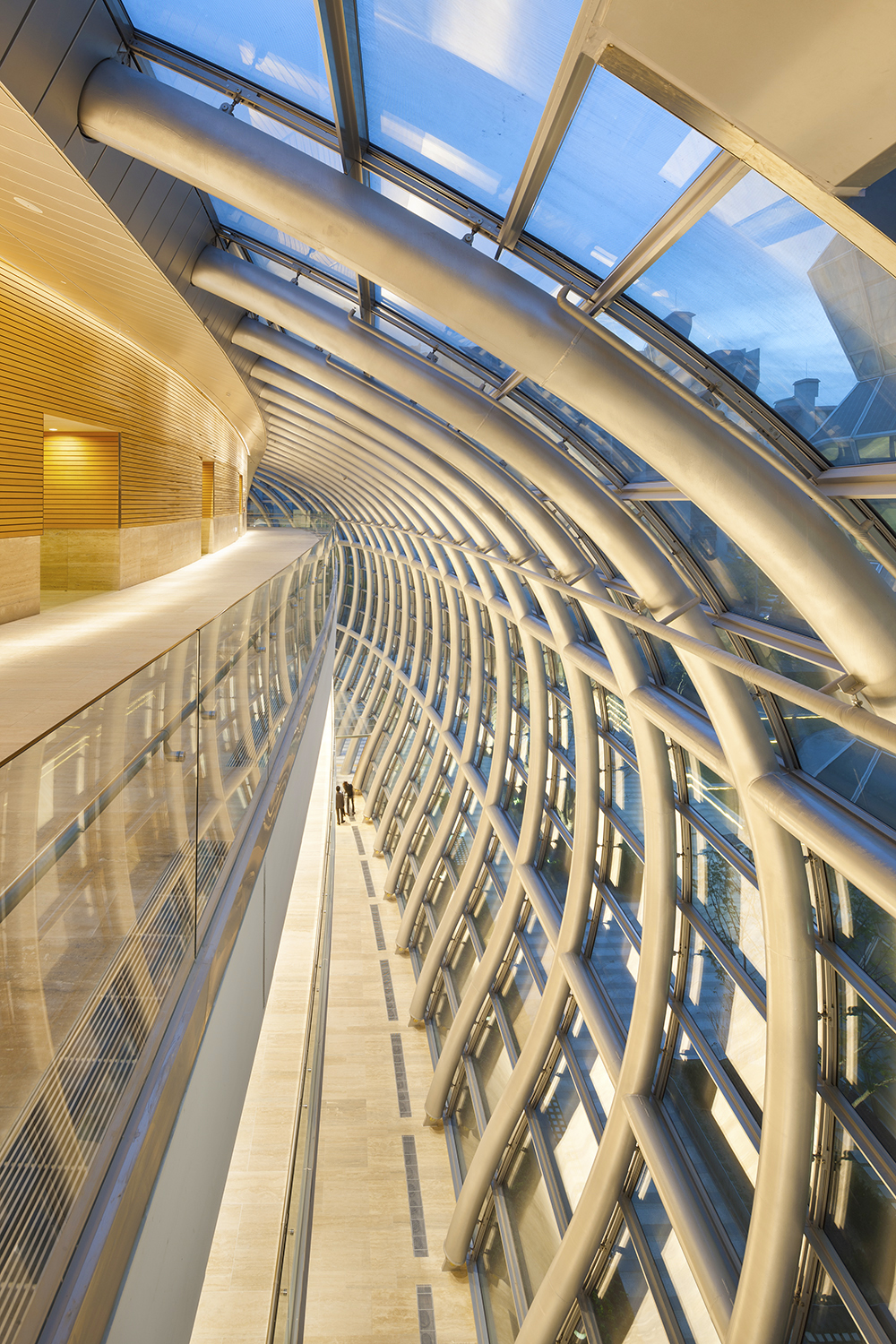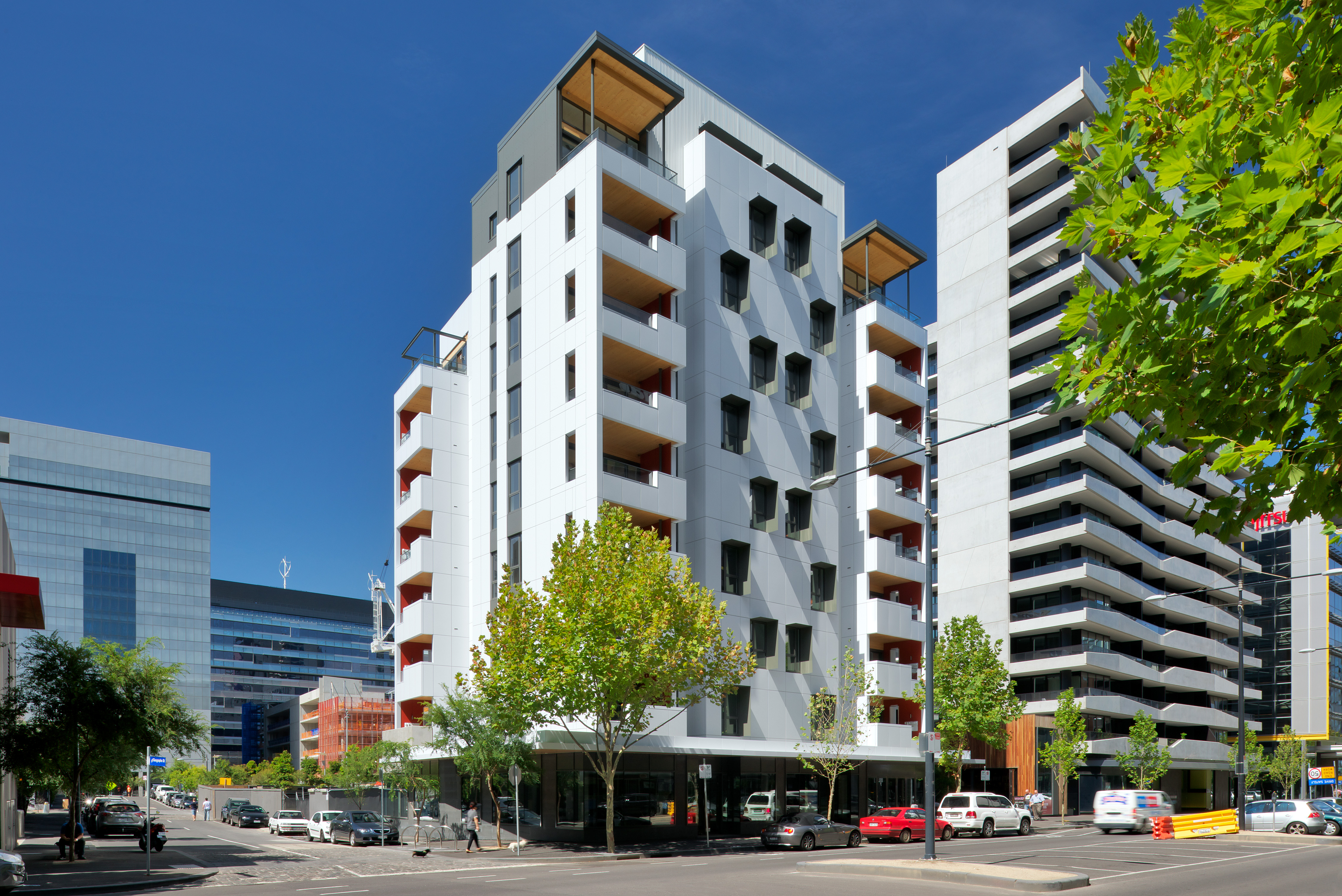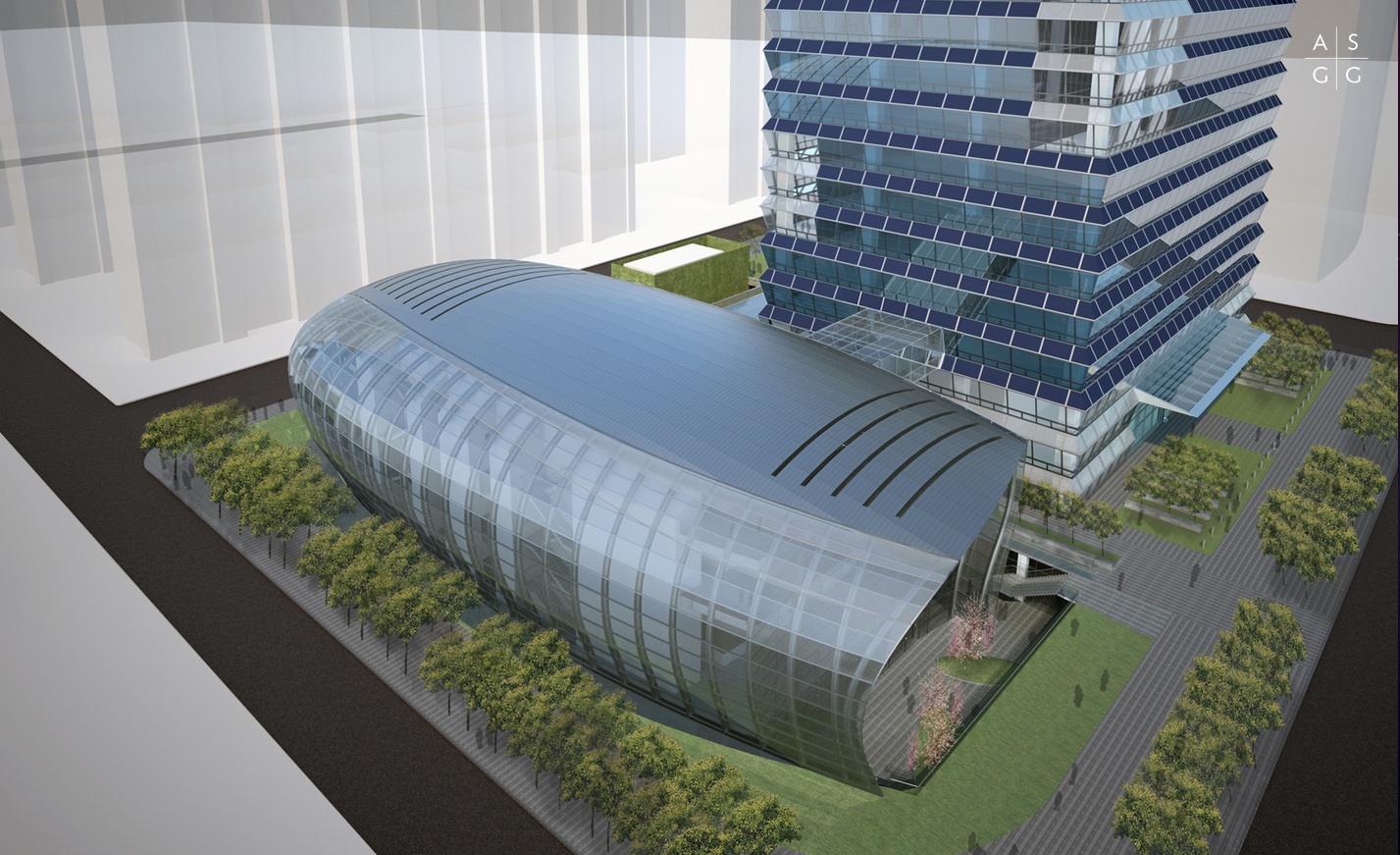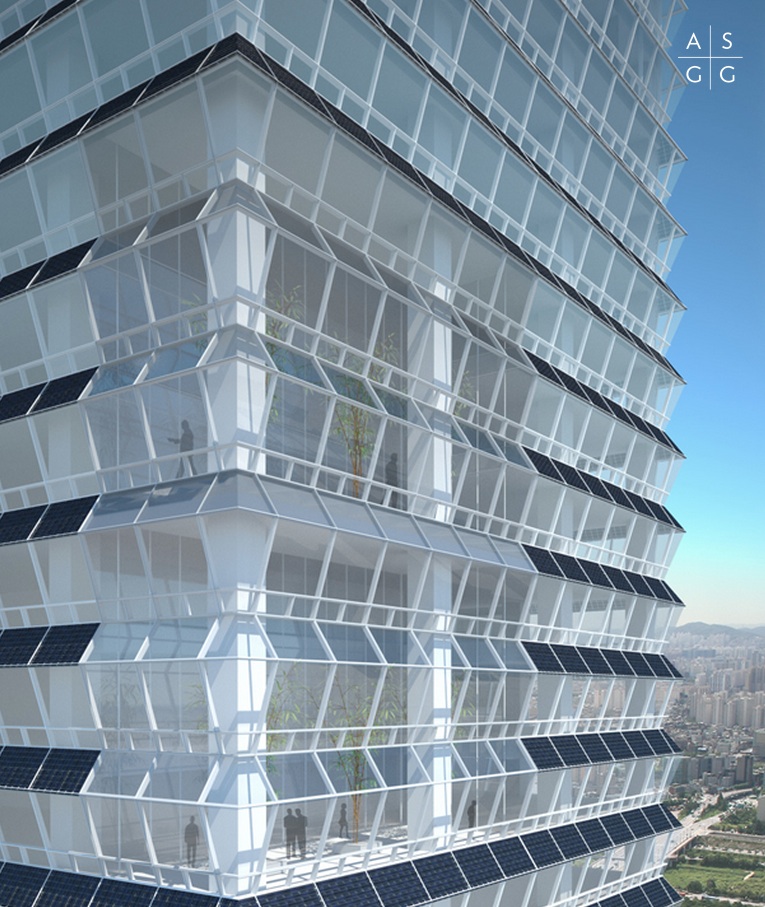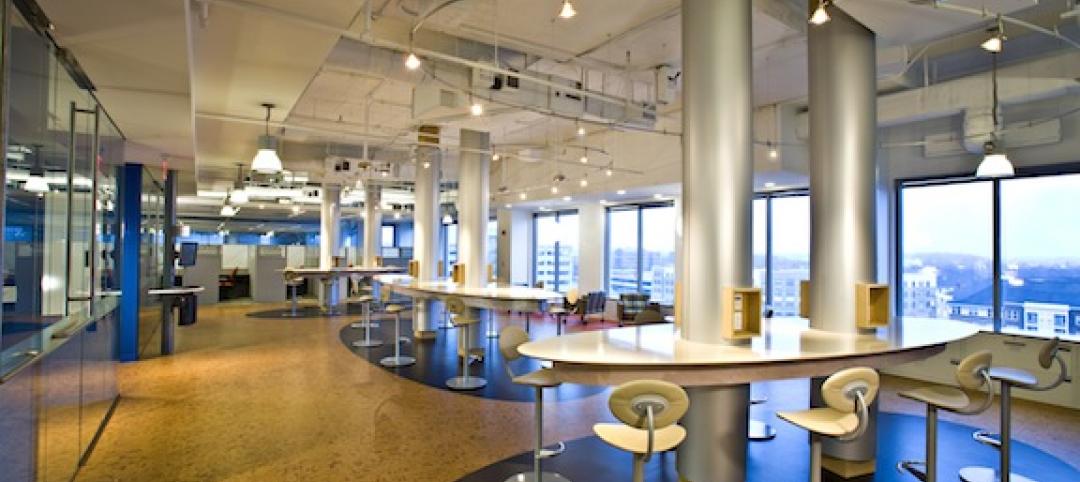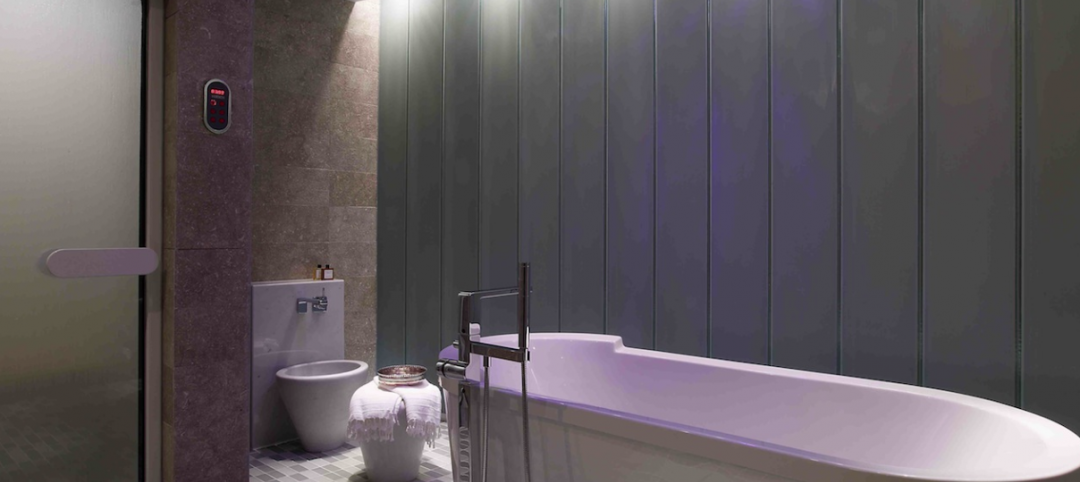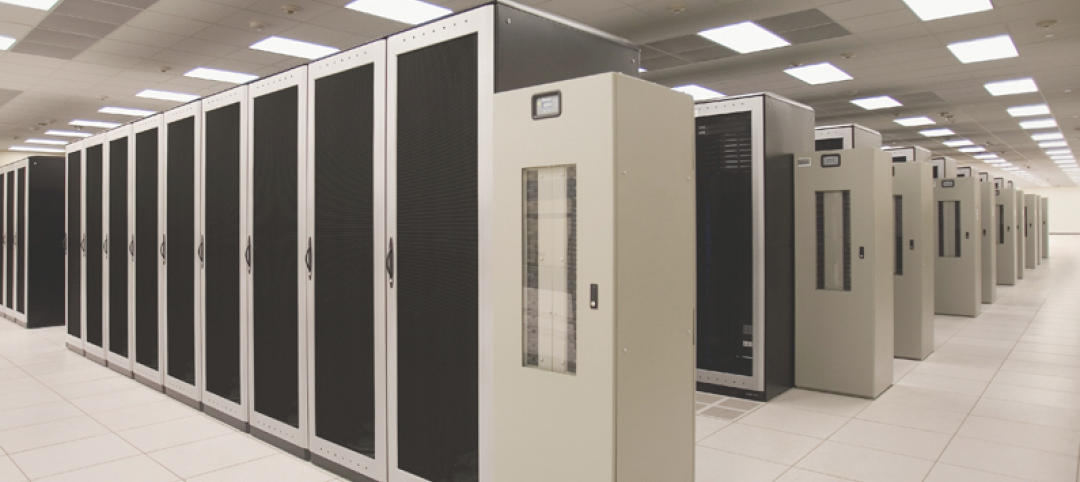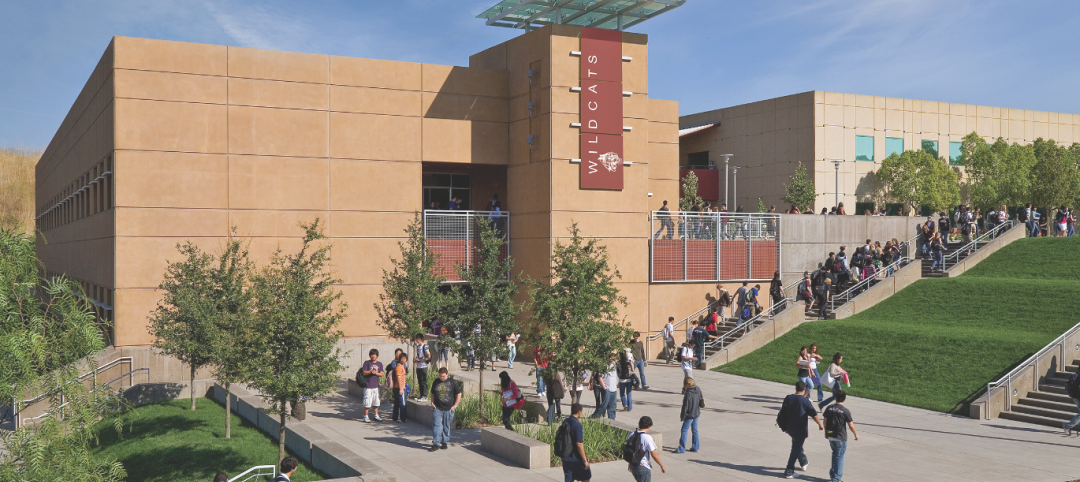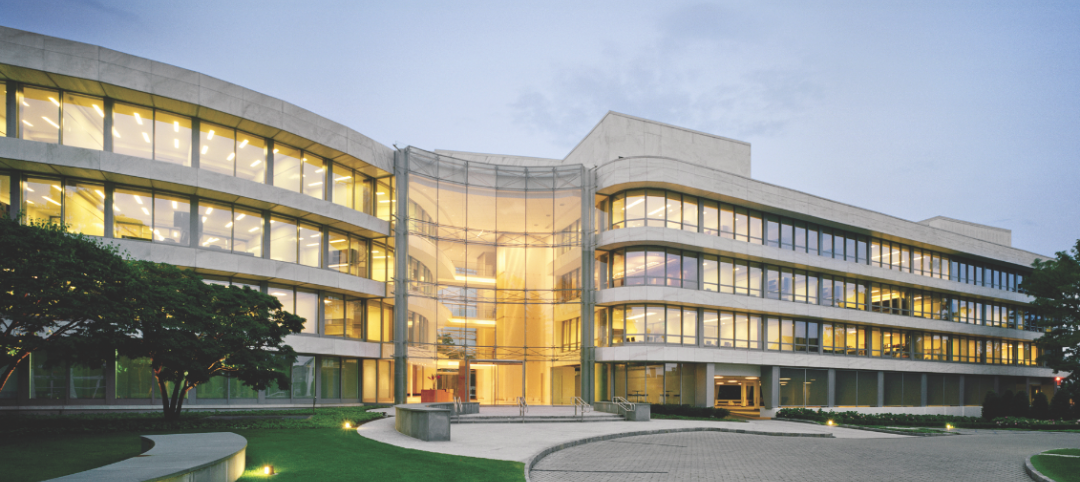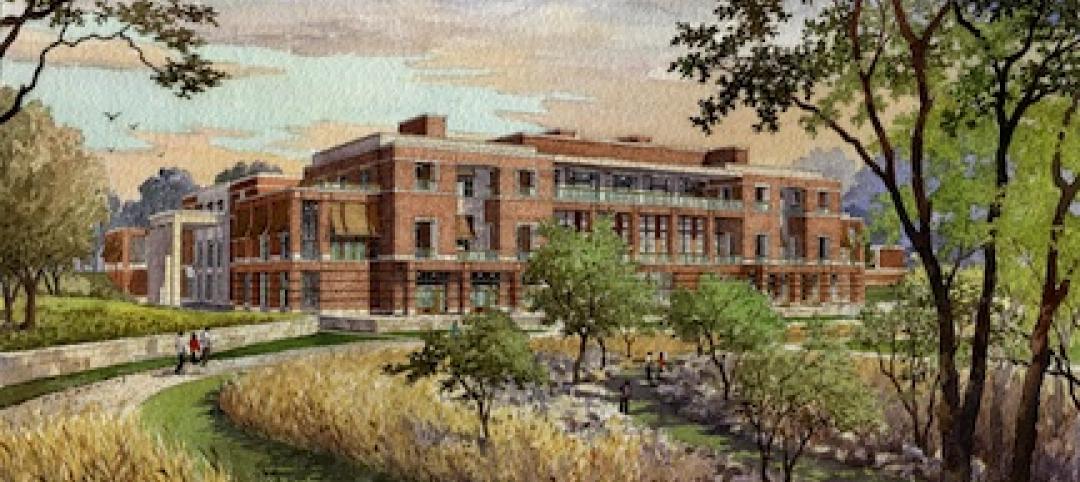Adrian Smith + Gordon Gill Architecture (AS+GG) has announced the public opening of the new head offices for the Federation of Korean Industries (FKI).
"FKI Headquarters represents a new exterior wall typology that both integrates significant quantities of photo voltaic panels into the exterior wall and slopes the vision glass at an angle that generates self-shading and allowing less reflective glass to be used. The result is a unique folded exterior texture that is both purposeful and distinctive" says Adrian Smith.
The 50-story, 240-meter tower features an innovative exterior wall, designed specifically for the project. The building’s unique skin will help reduce the internal heating and cooling loads and collect energy through photovoltaic panels that are integrated into the spandrel areas of the southwest and northwest facades.
By angling the spandrel panels 30 degrees upward toward the sun, the design is able to maximize the amount of energy collected, generating enough power to help maintain the electrical systems throughout the tower core and the office spaces.
Just below the spandrel panels, the vision panels are angled 15 degrees downward toward the ground, minimizing the amount of direct sun radiation and glare. Together, the alternating spandrel and vision panels create a dynamically rippled façade that is both environmentally progressive and visually striking, giving the tower a unique architectural presence on the skyline.
The interior of the building takes advantage of the floor to ceiling windows of the exterior wall, offering an abundance of natural light to office spaces and corridors as well as extensive views of neighboring Yeoido Park, the Han River and the surrounding city of Seoul.
The completed tower includes several indoor garden/atrium spaces that enhance the workplace environment with natural elements of wood, bamboo and other native plants. The roof top atrium space features more custom photovoltaic panels.
“The ideal angle of the PV panel placement on the roof was studied in detail,” says Gordon Gill, “In a relatively unconfined space, PVs would normally be angled upward at 30 degrees but within the limited area of the roof, we determined that a 10-degree angle allowed for more panels to be installed closer together, minimizing the effect of the panels casting shadows on each other and ultimately producing more solar energy for the building.”
AS+GG Partner Robert Forest adds, “The tower features one of the most efficient solar electric facades in the world in a cost effective manner, proactively expanding Korea's goal of advancing renewable energy generation in buildings.”
The sculptural podium piece is located on central Yeoi-Dae-Ro Avenue, further promoting the tower’s public identity. The podium amenities, available for public use include a banquet hall, central restaurant and conference center.
The podium will be available for international conferences with a large first floor banquet hall and smaller conference rooms of various sizes located on the second and third floors. The multi-purpose nature of the podium is another way that the FKI building will become a new city centerpiece for Seoul.
AS+GG collaborated with the engineering firms Thornton Tomasetti and Environmental Systems Design, as well as the local firm Chang-Jo Architects, on the project.
The Building Team included:
Adrian Smith + Gordon Gill Architecture (AS+GG) is dedicated to the design of high-performance architecture in a wide range of typology and scale, from low- and mid-rise residential, commercial and cultural buildings to mixed-use supertall towers and new cities. The office uses a holistic, integrated design approach that explores symbiotic relationships with the natural environment. AS+GG is currently working on projects for clients in the United Arab Emirates, Saudi Arabia, China, and the United States. The partnership was founded in 2006 by Adrian Smith, Gordon Gill and Robert Forest. For more information, please visit www.smithgill.com.
Thornton Tomasetti provides engineering services to clients worldwide on projects of all sizes and complexity. Thornton Tomasetti is responsible for the structural design of some of the world’s tallest buildings, including the Petronas Towers, Taipei 101, Ping An International Finance Center in China and Federation Tower in Russia. The firm is committed to creating the best structural solutions through technical ingenuity, pursuit of excellence and responsiveness to client needs. Thornton Tomasetti has offices across the United States and in Asia, Europe and the Middle East. For more information, please visit www.ThorntonTomasetti.com.
Environmental Systems Design, Inc. (ESD) has provided engineering design solutions on thousands of buildings in the United States and throughout the world. With over 220 engineering and design professionals, ESD is one of the largest consulting engineering firms in the Midwest. ESD offers consulting engineering design services in mechanical, electrical, plumbing, fire protection, LEED, sustainable design, commissioning, and technology. ESD supports a diverse range of markets including commercial, health and science, education, mission critical, residential, assembly, cultural, theaters, energy plants, transportation and international. For more information, please visit www.esdesign.com.
Since 1984, Chang-jo Architects has been one of the leading professional architectural firms in Korea, providing total and comprehensive design services in architectural design, urban planning, landscape design, engineering and construction management. By possessing such an integrated core of services, they deliver to their clients the best service and value through intelligent design and advanced technology. Learn more about Chang-jo Architects at www.cja.co.kr.
Related Stories
| Dec 7, 2010
Product of the Week: Petersen Aluminum’s column covers used in IBM’S new offices
IBM’s new offices at Dulles Station West in Herndon, Va., utilized Petersen’s PAC-1000 F Flush Series column covers. The columns are within the office’s Mobility Area, which is designed for a mobile workforce looking for quick in-and-out work space. The majority of workspaces in the office are unassigned and intended to be used on a temporary basis.
| Dec 6, 2010
Honeywell survey
Rising energy costs and a tough economic climate have forced the nation’s school districts to defer facility maintenance and delay construction projects, but they have also encouraged districts to pursue green initiatives, according to Honeywell’s second annual “School Energy and Environment Survey.”
| Dec 2, 2010
GKV Architects wins best guest room design award for Park Hyatt Istanbul
Gerner Kronick + Valcarcel, Architects, PC won the prestigious Gold Key Award for Excellence in Hospitality Design for best guest room, Park Hyatt Macka Palas, Istanbul, Turkey. Park Hyatt Maçka Palace marries historic and exotic elements with modern and luxurious, creating a unique space perpetuating Istanbul’s current culture. In addition to the façade restoration, GKV Architects designed 85 guestrooms, five penthouse suites, an ultra-hip rooftop bar, and a first-of-its-kind for Istanbul – a steakhouse, for the luxury hotel.
| Dec 2, 2010
U.S Energy Secretary Chu announces $21 Million to improve energy use in commercial buildings
U.S. Energy Secretary Steven Chu announced that 24 projects are receiving a total of $21 million in technical assistance to dramatically reduce the energy used in their commercial buildings. This initiative will connect commercial building owners and operators with multidisciplinary teams including researchers at DOE's National Laboratories and private sector building experts. The teams will design, construct, measure, and test low-energy building plans, and will help accelerate the deployment of cost-effective energy-saving measures in commercial buildings across the United States.
| Nov 29, 2010
Data Centers: Keeping Energy, Security in Check
Power consumption for data centers doubled from 2000 and 2006, and it is anticipated to double again by 2011, making these mission-critical facilities the nation’s largest commercial user of electric power. Major technology companies, notably Hewlett-Packard, Cisco Systems, and International Business Machines, are investing heavily in new data centers. HP, which acquired technology services provider EDS in 2008, announced in June that it would be closing many of its older data centers and would be building new, more highly optimized centers around the world.
| Nov 29, 2010
New Design Concepts for Elementary and Secondary Schools
Hard hit by the economy, new construction in the K-12 sector has slowed considerably over the past year. Yet innovation has continued, along with renovations and expansions. Today, Building Teams are showing a keener focus on sustainable design, as well as ways to improve indoor environmental quality (IEQ), daylighting, and low-maintenance finishes such as flooring.
| Nov 29, 2010
Renovating for Sustainability
Motivated by the prospect of increased property values, reduced utility bills, and an interest in jumping on the sustainability bandwagon, a noted upturn in green building upgrades is helping designers and real estate developers stay busy while waiting for the economy to recover. In fact, many of the larger property management outfits have set up teams to undertake projects seeking LEED for Existing Buildings: Operations & Maintenance (LEED-EBOM, also referred to as LEED-EB), a certification by the U.S. Green Building Council.
| Nov 23, 2010
The George W. Bush Presidential Center, which will house the former president’s library
The George W. Bush Presidential Center, which will house the former president’s library and museum, plus the Bush Institute, is aiming for LEED Platinum. The 226,565-sf center, located at Southern Methodist University, in Dallas, was designed by architect Robert A.M. Stern and landscape architect Michael Van Valkenburgh.
| Nov 23, 2010
Honeywell's School Energy and Environment Survey: 68% of districts delayed or eliminated improvements because of economy
Results of Honeywell's second annual “School Energy and Environment Survey” reveal that almost 90% of school leaders see a direct link between the quality and performance of school facilities, and student achievement. However, districts face several obstacles when it comes to keeping their buildings up to date and well maintained. For example, 68% of school districts have either delayed or eliminated building improvements in response to the economic downturn.


